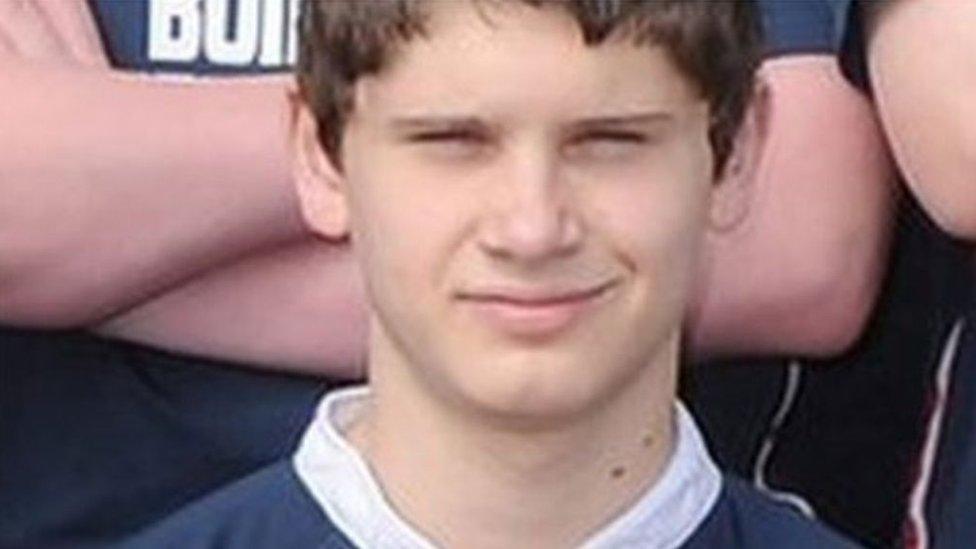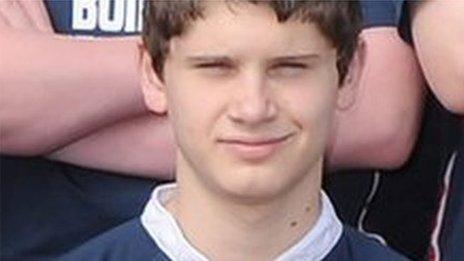Father backs new concussion in sport guidelines
- Published

Ben Robinson died after being treated three times for blows to the head
The father of a teenager who died after suffering concussion during a rugby match has backed new Sport Scotland guidelines, external on dealing with the injury.
Ben Robinson, 14, was treated three times for blows to the head before dying in hospital in 2011.
Scotland later became the first country in the world to produce a universal set of rules for all sports to follow.
Now Peter Robinson has helped draw up new guidelines which focus on brain rehabilitation rather than simply rest.
Mr Robinson, who lives near Edinburgh, said the 2015 report had a "massive impact" on how people involved in sport from grassroots to the elite level deal with concussion.
He told BBC Radio's Good Morning Scotland programme: "We still have a way to go but we now know concussion is a brain injury.
"Before Ben's incident and Ben's death, it was the elephant in the room that nobody wanted to talk about.
"But now we're pretty out in the open with our guidelines and they go out to all sports, not just rugby. Concussion can happen anywhere and in any sport."
'Build up slowly'
He added: "When we first produced the guidelines in 2015, the key thing was rest after a concussion.
"But now we are in line with the Berlin Consensus on Concussion, external, and the 2018 revised version means rehabilitation of the brain.
"So really they are saying, rest for the first 24-48 hours and then a return to normal life programme where you are starting to maybe read or aiming towards full return.
"It's getting the brain in gear and using it in little chunks and then build up slowly, just like you would for any other physical injury. Rehabilitation of the injury, rehabilitation of the brain."
The news guidelines state that:
At all levels in all sports if an athlete is suspected of having a concussion, they must be immediately removed from play. If in doubt, sit them out
No-one should return to play on the same day with suspected concussion
No-one should drive, operate machinery or drink alcohol after a suspected concussion
All head injuries should be assessed by a healthcare professional
Those who are suspected of being "knocked out" or have persisting symptoms such as headache, vomiting or unusual behaviour, need to be reviewed in an A&E.
Any player with a second concussion within 12 months, a history of multiple concussions, players with unusual symptoms or prolonged recovery should be assessed and managed by health care providers with experience in sports-related concussions.
A coroner ruled Ben, who lived in Carrickfergus in Northern Ireland, died as a result of "second impact syndrome".
The syndrome happens when a blow causes swelling to the brain before it has recovered fully from an earlier injury.
Young people fall into the high risk group if they have suffered a concussion because their brains are not fully mature.
Mr Robinson believes it is the responsibility of everyone involved in grassroots sport to be aware of the warning signs for concussion.
He said: "It just takes one person to recognise the signs and symptoms and that player or athlete to be removed from the game, and that's a life-saving message."
- Published28 October 2016

- Published3 October 2013
